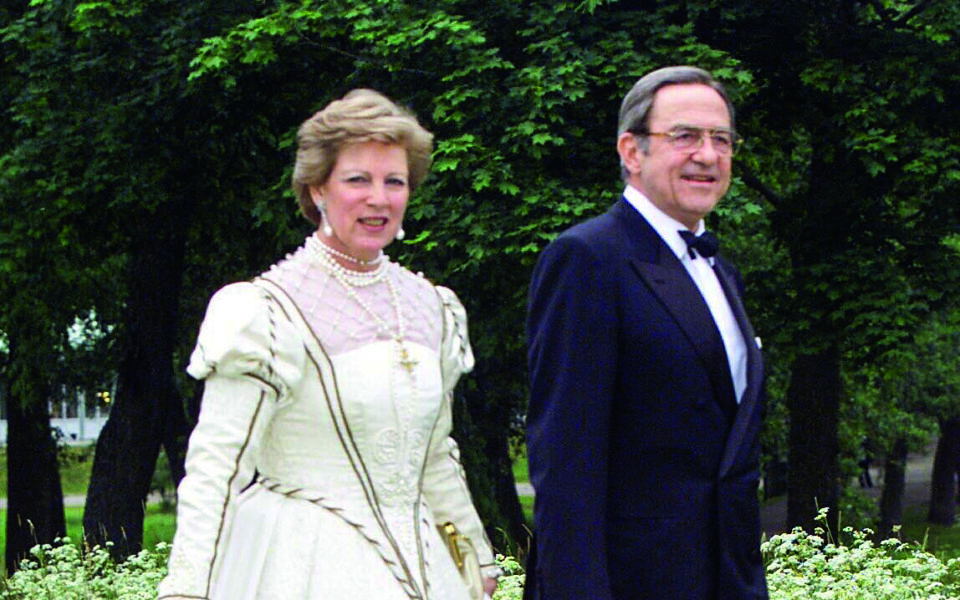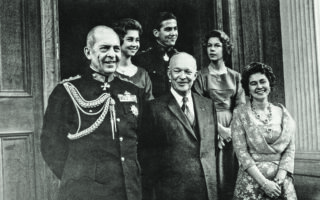The end of the monarchy

Would the referendum for abolishing the monarchy had been held if Constantine had returned to Greece before Konstantinos Karamanlis after the fall of the junta? And if it had, would the king have lost for certain? No one knows. What is obvious, however, is that Constantine had not accounted for the fact that the protagonists of the right and the center, as well as a good chunk of the military leadership, no longer relied on the palace.
As the restoration of democracy gathered pace, the royal dynasty was replaced by the political dynasties that emerged with the downfall of the junta. Georgios Papandreou in 1965, the junta in 1967 and Konstantinos Karamanlis in 1974 exploited Constantine’s inexperience and credulity to sharply expose all the failings of the monarchy, stripping it of its legitimacy and leading it to its fall. The left’s vehement opposition to the palace also played an important part.
Constantine I and George II were also exiled within in the 20th century, but the monarchy was restored and survived. After 1974, however, the conditions for such a restoration were no longer in evidence, and not just because of the ascendancy of the left or the right’s turn to the center with Karamanlis’ establishment of the New Democracy party. The cause, instead, more likely lay in the shift in the balance of power between Athens and the Great Powers. Greece’s induction into the European Economic Community was a strong enough anchor so that the Great Powers, including the United States, no longer needed the palace to act as guarantor of the country’s Western orientation.
We cannot know whether these were thoughts that Constantine mulled in the years that followed. The first time he visited Greece after 1967 was in February 1981, for his mother’s funeral at Tatoi. He and Anne-Marie had three children in the latter half of the 1960s – Alexia, Pavlos and Nikolaos – and two more in the 1980s – Theodora and Philippos.
The matter of the former royal family’s assets in Greece – and particularly the estates of Mon Repos in Corfu, Tatoi in Athens and Polydendri in Larissa – emerged in the early 1990s, with an agreement being reached in 1992 ceding the assets to a nonprofit organization and allowing mobile assets to be taken out of Greece.
Greece’s induction into the EEC was a strong enough anchor so that the Great Powers no longer needed the palace to act as guarantor of the country’s Western orientation
The prime minister at the time, Konstantinos Mitsotakis, believed the king had been treated unfairly, but the deal was abolished two years later by the socialist government of Andreas Papandreou, which stripped the royal family not just of all its property in Greece, but also of its Greek citizenship. Constantine and his family were asked to revert to their last name, Glucksburg.
The royal family took the Greek state to court over the matter of the assets, but not over the citizenship, as Constantine viewed such a move as an acknowledgment of the insult brought against his family.
In 2002, the European Court of Justice ruled that Greece had to pay the family compensation of just 13.7 million euros (against the 161 million demanded by Constantine), on the basis of the fact that they had never paid taxes for those assets and that the assets could not be said to belong to them exactly, as the properties had initially belonged to the Greek state and were given to the royal family for its use in its official capacity.
Constantine spent the last 20 years of his life living in the Peloponnesian resort town of Porto Heli, enjoying the company of friends and never missing an opportunity to say that he is Greek and loves Greece.
How will he be judged by the history books now? They have not been kind to him so far and his reputation as the king who lost the monarchy will unlikely change. Nevertheless, people may come to realize that greater forces were at play, driving the tragic events he was a part of – and not alone.
This is the third of a four-part series on Greece’s former king Constantine II, who died on Tuesday night, aged 82.





